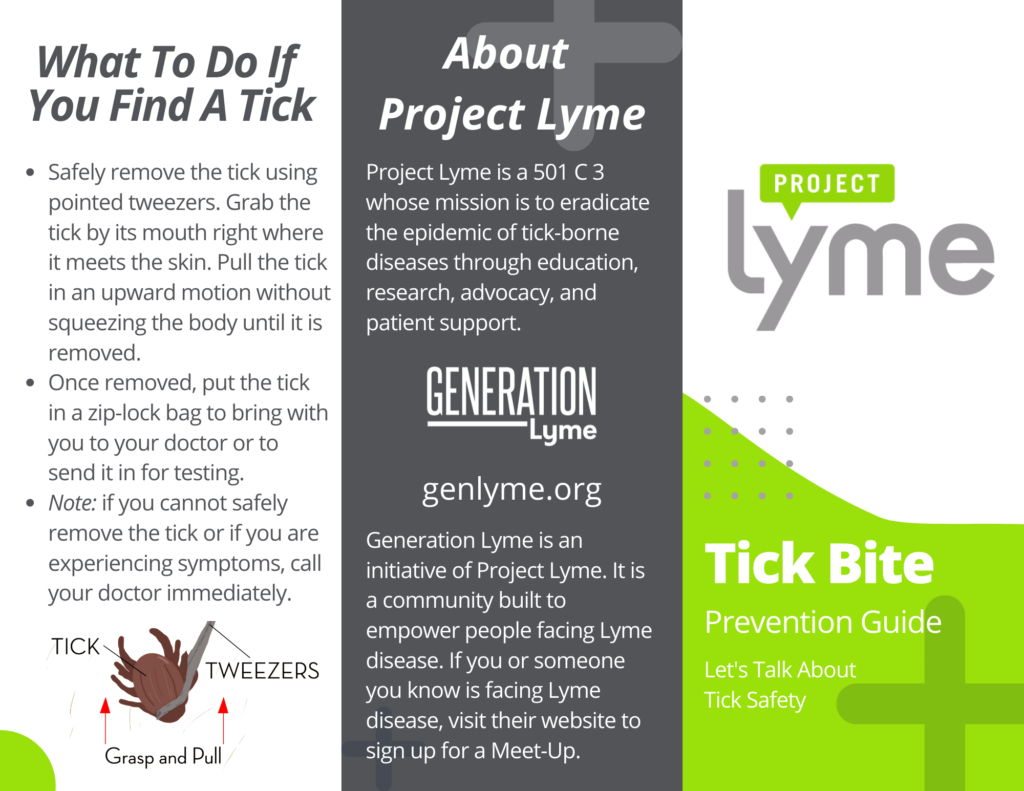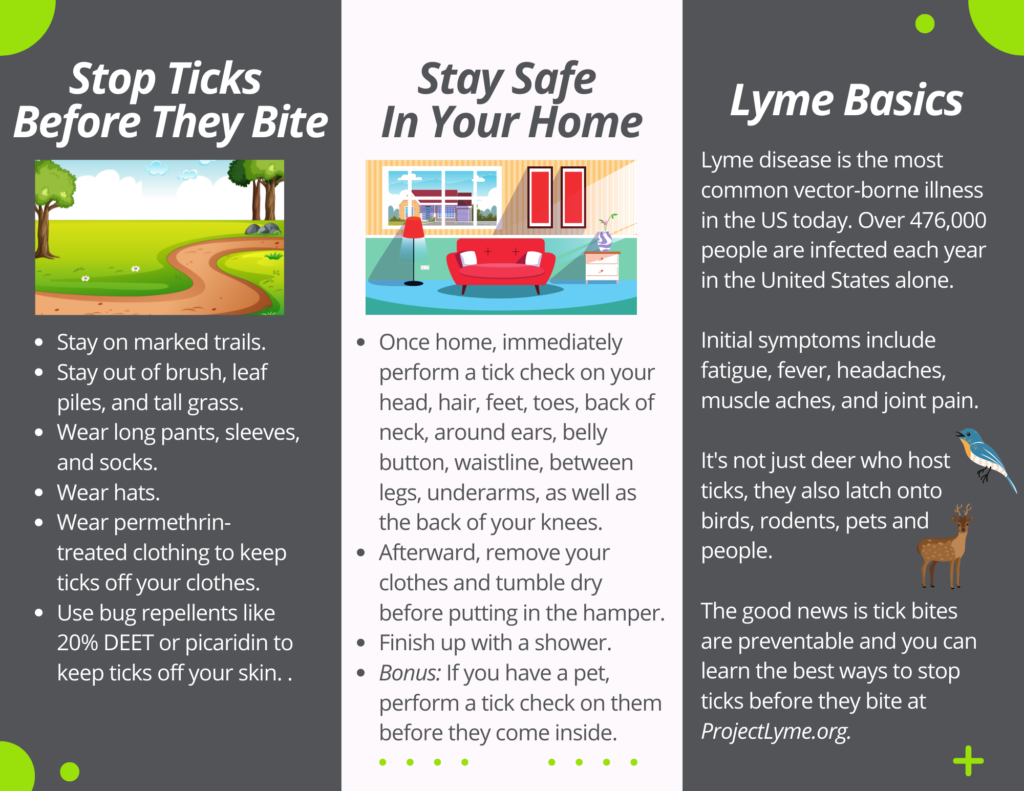Tick Safety Guidelines
Summer camp can be an important rite of passage in a child’s life. They get to make new friends and participate in fun activities. They also may wind up spending more time outdoors, where they are more likely to be exposed to ticks—and tick-borne infections like Lyme disease.
Children between the ages of 5 and 14 have a heightened risk of contracting Lyme disease in the first place. So summer camp can be a dangerous setting, particularly without parents present to nag their children about tick safety. Fortunately, with a little preparation, parents can help their children have a good time while staying safe from tick bites.
Here are a few simple guidelines to help prevent Lyme disease from ruining your child’s summer:
- Spray your child’s clothes and shoes with permethrin, an insecticide that can repel and kill ticks. Clothing and gear which has been properly treated with permethrin can last through multiple washings and offers your child extra protection for the duration of summer camp. You can purchase permethrin sprays as well as pre-treated clothing and gear from companies like our friends at Insect Shield.
- Encourage your child to apply an Environmental Protection Agency (EPA)-registered insect repellant—such as DEET or Oil of Lemon Eucalyptus (OLE)—every day at camp. Learn more about the different options by using the EPA’s search tool.
- Pack light-colored clothing. Long pants and long sleeves are ideal but not always practical during summer camp. Lighter colors make ticks easier to spot, especially if you have taken the precaution to spray them with permethrin.
- Encourage your child to shower as soon as possible after spending time in nature. The hot water may help wash away unattached ticks. Children may also find that a shower provides the perfect opportunity to thoroughly check for ticks.
- Teach your child how to perform a tick check after being outside. Remind them that ticks like to hide in places that are difficult to reach, including in their hair, ears, underarms, belly buttons, waist, between the legs, and behind the knees.
- Talk to the people who will be supervising your child at summer camp. Ask them to notify you if your child gets a tick bite. Advise them on how to properly remove and save the tick for testing.
When parents take the right precautions and communicate with their children about the importance of tick safety, summer camp can be a fun and memorable experience for everyone.
Lyme Education Tour
In addition to encouraging parents to speak directly with their children, Project Lyme has also partnered with the Lyme Education and Awareness Foundation (L.E.A.F.) to ensure proper prevention tips are being utilized by camps around the country.
Beginning on June 20th, 2022, Dr. Nancy Fox and her team will be heading on the third Lyme Education tour where they are expected to reach at least 2,500 kids at camps. L.E.A.F. shares innovative and age-appropriate educational programming which this year will include a brochure developed by Project Lyme.


Sources
- https://www.cdc.gov/mmwr/volumes/66/ss/ss6622a1.htm
- https://www.insectshield.com/
- https://www.epa.gov/insect-repellents/find-repellent-right-you
- https://projectlyme.org/resource/found-a-tick-bite/





